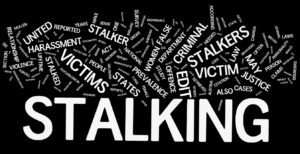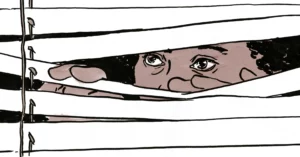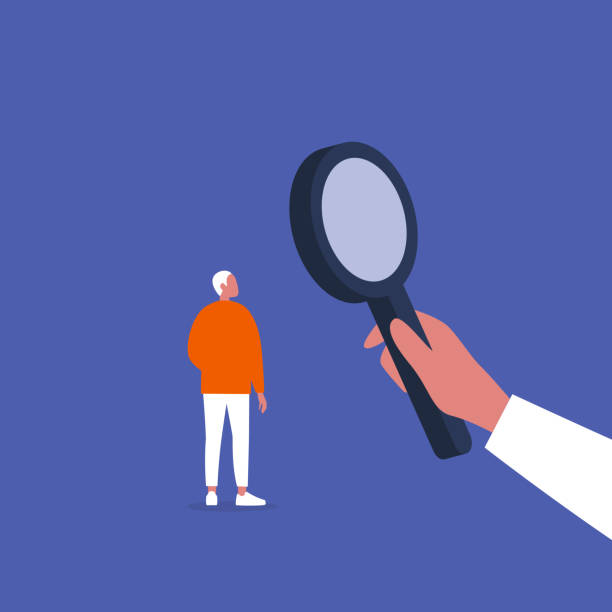Did you know that obsessive-compulsive disorder (OCD) and stalking have a lot in common? They are both characterized by intrusive thoughts and behaviors that can be difficult to control. In this blog post, we will discuss the similarities between OCD and stalking, as well as how to get help if you think you may be affected by either condition.
Contents
What Is Stalking?

Stalking is a pattern of behavior that causes fear or distress in the victim. It can involve the following someone, monitoring their activities, making unwanted contact, or threatening them in some way. Stalking can happen online or in person, and it is often motivated by a desire to control or harassed the victim.
What Is OCD?
OCD is an anxiety disorder that is characterized by obsessions (intrusive thoughts) and compulsions (repetitive behaviors). People with OCD may have obsessive thoughts about germs, contamination, or harm. They may also feel the need to wash their hands excessively, check things repeatedly, or hoard items. Compulsions are often used as a way to relieve anxiety caused by obsessions.
How Is OCD Linked To Stalking?
Both OCD and stalking are characterized by intrusive thoughts and behaviors that cause fear or distress in the victim.
While the line between healthy obsessions and OCD can be blurry, both conditions share certain key features. For example, people with OCD often have very specific routines or rituals that they feel compelled to perform to ward off anxiety or other negative emotions. In both conditions, the person may feel like they have no control over their thoughts or actions.
In some cases, these rituals may become so time-consuming or disruptive that they interfere with daily life. Similarly, stalkers often fixate on their victims to the point where it interferes with their own lives. Both OCD and stalking are also associated with intrusive thoughts or images that can be difficult to shake. For people with OCD, these thoughts may take the form of persistent worries about contamination or harm. Both OCD and stalking can also be extremely debilitating, making it difficult for the sufferer to live a normal life.
For stalkers, intrusive thoughts may center on the fear of being rejected or abandoned by their victim. In both cases, these thoughts can lead to compulsions or behaviors that are designed to ease the anxiety. However, these behaviors often have the opposite effect, leading to further distress and isolation.
Limerence is another term that describes an infatuation or obsession with another person. It stems from a romantic attraction that involuntarily develops into obsessive thoughts.
Similarities Between OCD and Stalking

OCD and stalking share several key features. Both involve:
- Recurrent, intrusive thoughts or images (obsessions)
- Compulsive behaviors or mental acts (compulsions)
- An intense need for control
- Significant distress or impairment in daily functioning
- Intrusive thoughts or images
- Fear or anxiety
- Difficulty controlling thoughts or behaviors
- Significant distress or impairment in daily life
- Acknowledging that the present thoughts are irrational but not being able to suppress them.
What Are The Risks Of Stalking?

Stalking can have several harmful effects on the victim. These include:
- Anxiety
- Depression
- Insomnia
- Fear of leaving the house
- Loss of work or school productivity
- Social isolation
- Loss of enjoyment in activities that were once enjoyed
- Strained relationships with family and friends
- Physical symptoms such as headaches or stomachaches
- Suicidal tendencies
How Is Stalking Treated?
Stalking is a serious crime in many countries. In the United States, for example, stalking is punishable by up to five years in prison. If the stalker has a history of violence or makes threats of violence, the penalties may be even more severe. Treatment for stalking usually involves some combination of psychotherapy, medication, and restraining orders. In some cases, inpatient treatment may be necessary.
If you or someone you know is facing stalking, it is important to seek help from a mental health professional or law enforcement officials. Stalking can be a very frightening experience, but there are ways to protect yourself and get the help you need.
Conclusion
OCD and stalking tendencies in itself conditions can be very debilitating. It can be harmful, burdening, and even threatening for the individual as well as others around them. If you think you may be struggling with either OCD or stalking, it is important to seek professional help. A qualified mental health professional can assess your symptoms and provide you with the tools you need to manage your condition.
If you are looking for affordable Online OCD Counseling MantraCare can help: Book a trial OCD therapy session


